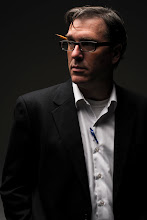Daughters are dilemmas.
They’re riddles. They’re smiling enigmas. They’re as confounding as pop quizzes about chemical compounds in an English class. They’re really long extension cords all tangled up that you can’t find the end to. They’re cryptography incarnate.
I know this because my 5-year-old daughter is starting to ask questions that not only do I not have answers for, I don’t even know where they’re coming from.
Case in point:
I was loading the dishwasher last week when my daughter sashayed into the kitchen and asked, “Dad, do I look hot?”
I didn’t quite hear her the first time because loading a dishwasher requires focus similar to packing a moving van. This dish moved here allows for that bowl to fit nicely there, and, voila!, there’s room for two more coffee cups.
“What’s that, hon?” I said, looking up.
“Do I look hot?” she asked, cocking a hip and tossing her hair a bit.
I didn’t answer right away because it took me a second to process that her question had nothing to do with the temperature outside, which was, indeed, quite hot.
My first clue to discerning the intent of her query was that she had changed clothes. Instead of the t-shirt and shorts she had been wearing less than a quarter of an hour ago, she now sported a lavender sateen skirt and a pink cotton top adorned in the center with rhinestones in the shape of a heart. The pink plastic shoes with raised heels she wore appeared a little large. She had a pair of red sunglasses pushed back on the top of her head. In the crook of her arm, she carried a glittering pink handbag with a purple fuzzy trim. Each of her fingers was accented with a plastic ring collected over time from cereal boxes, the dentist’s office, and bubblegum machines.
There were other clues as well.
“What’s on your mouth?” I asked.
“Lip gloss,” she said, puckering her lips.
I leaned down and sniffed.
“Why do you smell like,” I took a second sniff to be sure, “. . . a pine tree?”
“Oh, I put on some air freshener,” she said. “Do I look hot?”
I finally grasped what she was asking, but even after understanding her question, I was far from prepared to offer up an answer.
I realized I was a stranger in a strange land that only appeared to be my own kitchen. Standing before me was a sight I could barely comprehend.
I grew up with three brothers. There was never any lip gloss in our house. There were no pink handbags. If my brothers and I used air freshener it was for some sort of aerosol attack in which we attempted to blind our opponents with direct hits to their eyes.
At the same time my mind was trying to get a handle on the foreign practice of accessorizing, it struggled with the idea of my 5-year-old daughter using the word “hot.”
What kind of question is “Do I look hot?” from a 5-year-old? This is a problem. Our culture is exposing children to sexuality far, far too early, and conversations between parents and a child that may once have taken place when they were in their early teens are now taking place years earlier.
I’m not prepared for that.
My first inclination was to answer my daughter’s question along the lines of, “No, you do not look hot. You’re too young to look hot, and even when you’re old enough to look hot, you should never ask your father if you look hot because my answer will always be ‘Over my dead body, little missie.’ If you must ask someone, you should ask your mother when your father isn’t around to hear you ask. And no more TV for you, young lady, because you shouldn’t even know the word hot outside its relation to bathwater, the stove, and the weather.”
But then I thought maybe I was projecting my definition of “hot” into the moment. My daughter’s understanding of the word was surely devoid of any sexuality. To her, the word “hot” is merely a synonym for “pretty.”
Don’t overreact, I warned myself. There will be plenty of time for overreacting in the years to come. Like a skilled politician, I chose to step around the word all together.
“You look very colorful and shiny,” I answered.
She seemed happy with my delayed response.
“Thank you,” she said demurely, and she turned to head back up to her room, her oversized shoes clunking across the floor. Just as she left the kitchen, though, she twisted a bit and reached back to unabashedly dig her underwear out of her butt.
Oh, thank goodness, I thought with relief. She’s still my little girl.
It was easy to decide against telling her that digging the underwear out of your butt is most definitely not hot.
She can find that out on her own when she goes to college.
